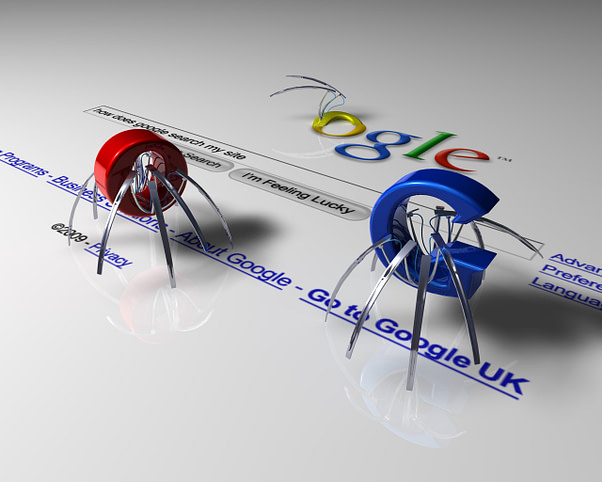Taking a Closer Look at Whether You Should Trust Google's Advice
We have all heard the phrase "Google it" when we can't find the answer. But is it always right? Google is one of the most powerful search engines in the world, and it has become a trusted source of information for many people, but is that always the case?

Let's take a look at whether or not Google is always right.
1. Understanding Google's Algorithm
Google uses an algorithm that collects and organizes the data from websites all over the web, allowing it to return accurate results for your queries quickly. However, this doesn't mean every search result is 100% reliable. Therefore, it's essential to understand how Google works and why certain results may be more accurate than others.
2. Evaluating Sources
Just because a website appears at the top of your search results doesn't necessarily mean that it is correct or reliable. Therefore, it's crucial to vet each source before taking its advice as fact. Look for signs such as author credentials, the accuracy of the information, and if the source is from a reputable website.
3. Taking Care of Sensitive Information
Regarding sensitive information such as medical advice, Google may not be the best resource. Always check with qualified professionals before taking any medical advice you come across online, as it could be wrong or outdated.
4. Don't Believe Everything You Read
Google is an excellent source of information, but it is not always correct. Cross-check the accuracy of any online advice before taking it as fact. Also, remember that anyone can put anything on the internet, so be sure to use your best judgment when gathering information from the web.
When to Question the Answer Provided by Google
Google is a powerful tool that can help us answer complex questions with just a few clicks. However, it’s important to remember that Google is not always correct. If you are trying to find an answer to something specific, use other resources, such as consulting with experts in the field or performing more in-depth research on the topic.
Another vital thing to remember is that it’s easy for web pages to spread misinformation online. Before believing something you find online, make sure it comes from a reliable source and has been verified by experts in the field.
Also, check the date of any articles or websites you are consulting. If they are several years old, their information may no longer be relevant or accurate.

Finally, remember that not everything can be answered with a quick Google search. Sometimes, it is better to ask for different perspectives on a topic or consult an expert who can provide more in-depth insight. Doing this will ensure that you have the most accurate and up-to-date information.
Ultimately, it’s essential to know that Google is not always the final authority on any subject. Use other resources as well, and always double-check the answers you find. Nevertheless, with a little bit of caution, Google can be a beneficial tool in your research endeavors.
The truth is that while Google can provide you with a wealth of information, there are times when even it gets it wrong. This is because the search engine relies on algorithms and AI to generate results, so its answers may not be 100% accurate.
It also means that some results may be biased towards specific sources—for example, a search for "best restaurant" may yield results from Yelp or TripAdvisor rather than an independent reviewer.
In addition, Google can only give you so much information. While it can provide basic facts about a subject or topic, you will need to look elsewhere if you want more in-depth knowledge.
The same goes for more obscure topics; if there isn't enough information available online, then Google won't be able to help you.
Finally, it's important to remember that not everything you read on Google (or anywhere else on the internet) is true or accurate. There are plenty of unreliable sources, and it's up to you to research and use your judgment when making decisions based on what you've found online.
The SEO blog scene is growing, meaning digital marketers and SEO professionals are constantly discovering loopholes to manipulate Google ranking by taking advantage of any significant ranking signal the algorithms are looking at when deciding a site's ranking.
Are Google Search Results Trustworthy?
Google search results are usually entirely trustworthy; however, it is vital to take a few precautions. First, you should always be wary of any sources appearing on the first page of Google results.
These can sometimes be biased or sponsored content that may not be completely accurate. Therefore, it is also essential to consider the source's reliability and ensure it is from a reputable website or organization.
Additionally, you should be aware of any potential bias in the search results, as different people may have varying opinions on the same topic.
Finally, you should always fact-check the information on Google SERP results to ensure it is accurate and up-to-date. By taking these precautionary steps, you can ensure that the information you get from Google search results is reliable and trustworthy.
How Search Engines Determine What You See
Google's ranking factors are complex and ever-evolving, but backlinks remain among the most important. A backlink is a link from an external website to your own, telling search crawlers that other websites think your content is valuable. So naturally, the more reputable websites link to you, the better.

However, crawlers also consider internal links between pages on your website. These help them determine the hierarchy of your content, meaning which pages are more important than others.
Search engine crawlers look at page titles and headings to understand context and relevance. Therefore, titles should give readers an idea of what to expect on a page and include relevant keywords, while headings should be concise and descriptive and include keywords.
Social media is another factor that affects search rankings. If an article or page gets shared on social networks like Facebook or Twitter, it can often boost its position in the SERPs. This is because the more people talk about a webpage, the more likely it is to be considered relevant and trustworthy by Google, Yahoo, Bing, etc.
Finally, the content on a page matters too. Content should be up-to-date, include relevant keywords, and provide value to readers for it to rank highly in SERPs. If a page is determined to contain low-quality or irrelevant content, it won’t rank as well as pages with engaging and helpful information.
By understanding how search algorithms determine what you see, you can make informed decisions about the content you create and ensure it ranks highly in SERPs. In addition, with the right SEO strategies and tactics, your page or website can be more visible and successful if you follow Google's webmaster guidelines.
Key Takeaways:
- Backlinks from reputable websites are essential for improving SERP rankings.
- Internal links help determine the hierarchy of content on your website.
- Titles and headings should be descriptive and include relevant keywords.
- Social media can boost page rankings if it generates positive engagement.
- Content must be up-to-date, valuable, and include relevant keywords to rank highly.
- Understanding SEO ranking factors can help make informed decisions and create successful pages.
- Optimizing website speed can affect how well pages rank in SERPs.

Remember just how important site speed is regarding Google searches, especially in the mobile world. Site speed measures how quickly a website loads, which is essential for user experience and rankings.
Google has stated that page load time is factored into its algorithm, meaning pages with faster load times have an advantage over those taking longer to display content. To make sure your pages are ranking.
Loading speed is a key ranking factor that affects what Google and others show in their rankings. This is because search engines want to provide their users with the best experience possible, and slow-loading websites typically don’t rank as well as faster ones.
There are a few key things you can do to optimize your website’s speed: reduce image sizes, minify CSS and JavaScript, enable browser caching, and use a content delivery network (CDN). By doing these things, you can see an improvement in your website’s speed and increased SEO rankings.
Which Search Engine has the Most Accurate Results?
The answer isn't clear-cut when it comes to search results pages and who has the most accurate search rankings. Each major search engine has its algorithms and ranking systems that determine what sites appear on the first page when a person does a query.
For example, Google uses a PageRank system (yes, Google PR is still very much a thing, despite not being visible to the public) to rank websites based on their overall relevance to the search query. In contrast, Bing and Yahoo use different algorithms that consider user interactions and content quality factors.

As such, there isn't one that can be considered the most accurate overall. However, each major search engine has its strengths and weaknesses in delivering the most relevant results to users.
For example, Google is widely seen as having the best overall accuracy in search results, particularly for topics requiring detailed or technical information. Google is also known for prioritizing websites with high-quality content, meaning that pages from reputable sources tend to appear higher in the search rankings.
On the other hand, Bing and Yahoo are often seen as having more accurate results regarding specific topics, such as entertainment news and celebrity gossip.
Ultimately, which engine has the most accurate results depends on the type of information you are looking for and the search engine that best suits your needs. For example, Google may be better than Bing and Yahoo if you are looking for detailed or technical information.
However, if you need up-to-date entertainment news or celebrity gossip, then Bing or Yahoo may be a better option. Ultimately, the choice is up to you—none can be said to have the most accurate results. The key is finding the best search engine for your particular needs.
Conclusion
So while Google can be an invaluable tool when finding answers quickly and easily, it should not be relied upon as an infallible source of truth. As with anything else, do your research and ensure that what you're reading comes from reliable sources before making any decisions based on what you find online.
That way, you'll get the most accurate information possible without worrying about being misled by untrustworthy sources. So, is Google always right? The more precise answer would be, mostly.
Recommended reading:
